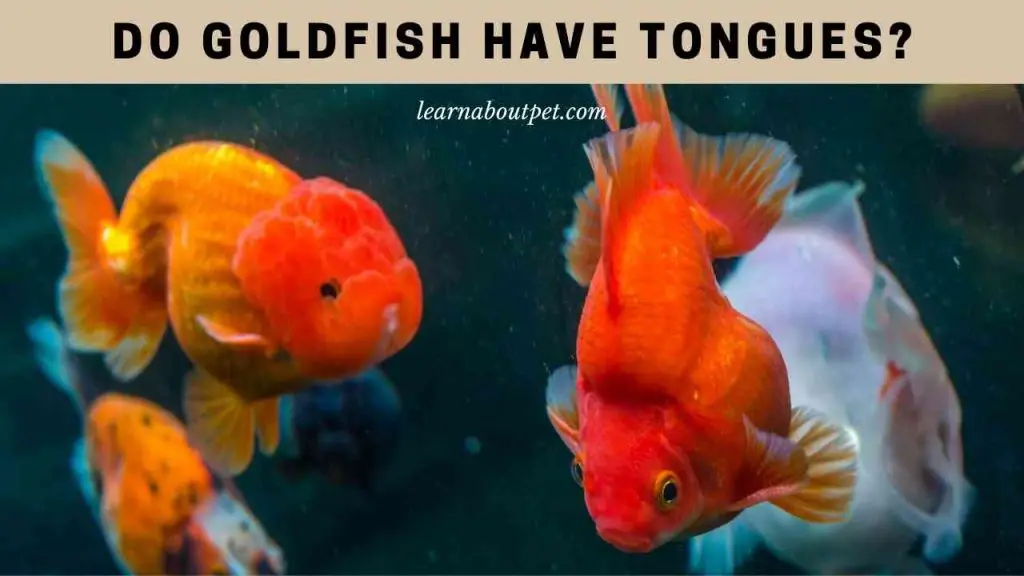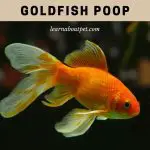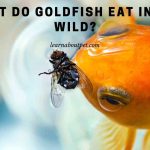Goldfish is a great pet for anyone who wants a quiet pet without any noises and disturbances in their house. Apart from many things you don’t have to worry about their food as they require only 2-3 times a day.
Do goldfish have tongues? Goldfish have a tongue-like structure that’s muscular. It’s not an actual tongue but performs the function of the tongue. This pseudo-tongue is a basihyal and is present in the lowest mouth part.
In this article, we discuss do goldfish have tongues. We will also see the brief structure of the fish tongue. Let’s start the article without wasting any time now.

Do Goldfish Have Tongues?
It’s a question that anyone finds very intriguing about goldfish tongues. Almost all organisms have taste-organs that they use to cherish their meal.
But not all have true tongues, and some organisms like fish also have a false tongue-like structure in their mouth’s lower portion.
We call that tongue-like structure basihyal. Goldfish use this tongue-like organ with taste buds to add mucus and water to hydrate the food and soften it to pass down the esophagus.
Goldfish Tongue Structure
Goldfish tongue is like a muscular floor that’s present inside the mouth. It performs all the basic functions of a normal tongue, but it’s a pseudo tongue.
Presence: We have already seen that the basihyal is present in the lower portion of the mouth and will be present with teeth.
Function: It performs all the functions that a normal tongue performs. It will soften the food, roll it back to the oral cavity’s end, and then pass it down to the esophagus.
Taste Buds: Goldfish tongues will have side taste buds, and they help recognize the taste of a specific food. Although the taste and other things are poorly developed in these lower classification organisms, you can expect them to taste the available fish food that you buy from the grocery store.
Can Goldfish Taste Their Food?
Another thing spiced up our discussion once was: can goldfish taste food? My friends hoped to have a healthy debate on this, and I also agreed to discuss it.
When we examine a goldfish, we won’t see the taste buds visually with our eyes. But the taste buds are present in the sideways of the mouth.
So yes, goldfish can taste the food, and they will be reacting to every food you take from a supermarket.
That’s why we’ve seen that many goldfish are very picky eaters, and their owners have to be more careful while buying the proper food for their pet goldfish.
Do Fish Have Tongues?
Fish have tongues in one way and don’t have in another way. Fish enjoy a healthy life while they live in the freshwater sea.
Goldfish don’t develop a proper tongue because they don’t need a try tongue living in the water. Humans and other land animals have a true tongue because they add moisture.
That’s why you can expect fish to have a false-tongue-like structure that only aids in eating food. That’s a muscular organ that reflexes food back into the mouth for further digestion. Otherwise, there’s no need for tongue in fish for anything.
Do Fancy Goldfish Have Tongues?
Fancy goldfish are another type of fish that we have been discussing under the fish tongue. But, we still get some queries to write about the fancy goldfish.
The truth is that fancy goldfish successfully get the same muscular tongue-like structure that’s just for digestion-helping.
Fancy goldfish can do more with their teeth and muscular basihyal. The Basihyal will assist in completing all the primary digestion needs in the oral cavity.
But in fish, very small digestion occurs in the mouth, and major digestion starts when the food reaches the stomach. Food will start converting into smaller protein units and carbohydrates units.
Why Do Goldfish Open Their Mouths?
Does a goldfish have tongues? If they have tongues, who do they keep their mouths open all the time? Often or most of the time, we see a fish keep its mouth open.
There are many reasons that you can see why your goldfish is opening his mouth. There are as follows:
- Regular behavior
- Oxygen deficiency
- Poor water quality
- Hungry fish
- Diseases and stress

Regular behavior
Most people think that there’s something wrong with their goldfish pet, but in reality, nothing is wrong with their goldfish.
One can expect that the fish’s mouth remains open because of the normal activity in the freshwater or tank.
But, you might not be sure if some other factors cause it to open the mouth.
Oxygen deficiency
The level of oxygen will determine the breathing of fish. Everybody knows that gills in fish are responsible for breathing.
But, if the oxygen level isn’t proper, your fish will keep the mouth open and try to produce oxygen of metabolism from water. In this way, the mouth will still be open.
Poor water quality
The quality of water also affects the regular activities of a fish. When you see a fish in the tank, you have to change the water periodically to provide good quality water to him.
But when you’re not changing the water frequently at regular intervals, the fish will be having some major problems in such cases and will open their mouth.
Hungry fish
A hungry fish is also asking for food while opening its mouth. The need for food will make the fish respond by opening the mouth and increasing the movement in the tank.
So whenever the movement of fish increases and you haven’t given food in a while, you can depict that the fish is asking for food. So, give the regular food to your fish, and you will be able to get your normal fish back.
Diseases and stress
The last reason a fish is always opening its mouth is that distress and stress is the main cause of this problem. Major factors that induce stress in fish are food shortage, some poor quality water, and no owner around them for a long time.
Goldfish also love to live in pairs, so if you think your goldfish is acting weird, try and buy another fish so that he will be busy with his partner.
Do Goldfish Have Taste Buds?
Taste buds are like the mandatory things that every organism possesses. The taste buds of goldfish are present in their lower mouth portion. You can expect these goldfish to use these taste buds to taste different flavors of fish foods.
Frequently Asked Questions (FAQs)
Does A Goldfish Have A Brain?
Yes, goldfish have a brain, and it’s not developed like human beings or complex organisms. Very little network of neurons is present in a goldfish, and it will have a little brain framework. But the brain functions and all other things work perfectly.
Can Goldfish Hear You Talk?
Yes, the goldfish can hear everybody talking to it. The ears of goldfish are present inside their body and are internal ears.
Do All Fishes Have Tongue?
Almost all fish that exist in nature do have a tongue. The fish tongue isn’t a true structure, though. It is made of muscle cells that form along with muscle sheets that roll into the mouth and is known as fish basihyal.
What Are Fish Tongues?
Fish tongues are special structures present in the mouth made up of muscular cells. These are known as basihyal.
Final Verdict – Do Goldfish Have Tongues
Do goldfish have tongues or basihyal? All fish have a muscular organ made of cells that can contract and relax. So do goldfish have tongues? Yes, the goldfish tongue is known as basihyal.

It helps perform all the activities of a normal tongue and will help the fish in initial digestion at mouth level.
As a pet lover, make sure to learn about pet more and give your pet fish a good and comfortable life!

Welcome to Learn About Pet. My name is Rajkumar Ravichandran and I love all pets, travel, and amazing food. I write about my passion and personal experience caring for multiple pets in this blog! ❤️
Post Disclaimer
DISCLAIMER: THIS BLOG OR WEBSITE, "Learn About Pet", DOES NOT PROVIDE YOU WITH MEDICAL ADVICE AND IS NOT A SUBSTITUTE FOR MEDICAL ADVICE. ALWAYS GET IN TOUCH WITH YOUR PERSONAL VETERINARIAN AND USE INFORMATION HERE AS GENERAL ADVICE.
The information, including but not limited to, text, graphics, images and other material contained on this website are for informational purposes only. No material on this site is intended to be a substitute for professional veterinary advice, food recommendation, diagnosis, or treatment. Always seek the advice of your veterinarian or other qualified health care provider with any questions you may have regarding a medical condition or for pet food related questions.







